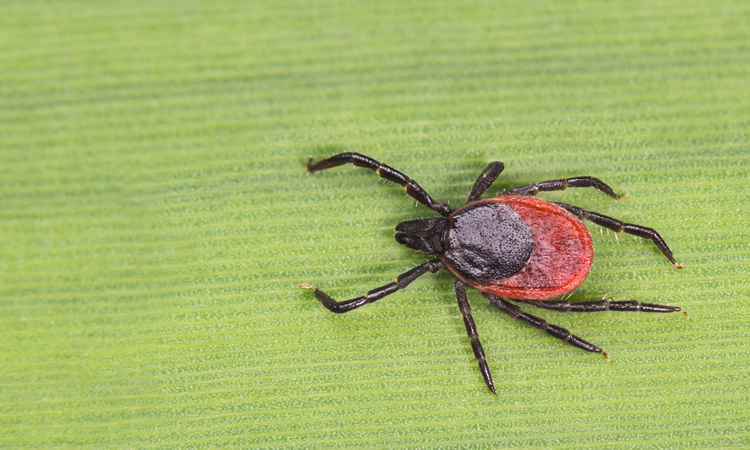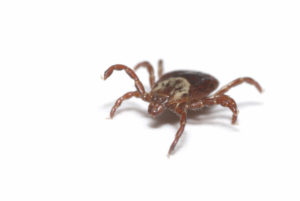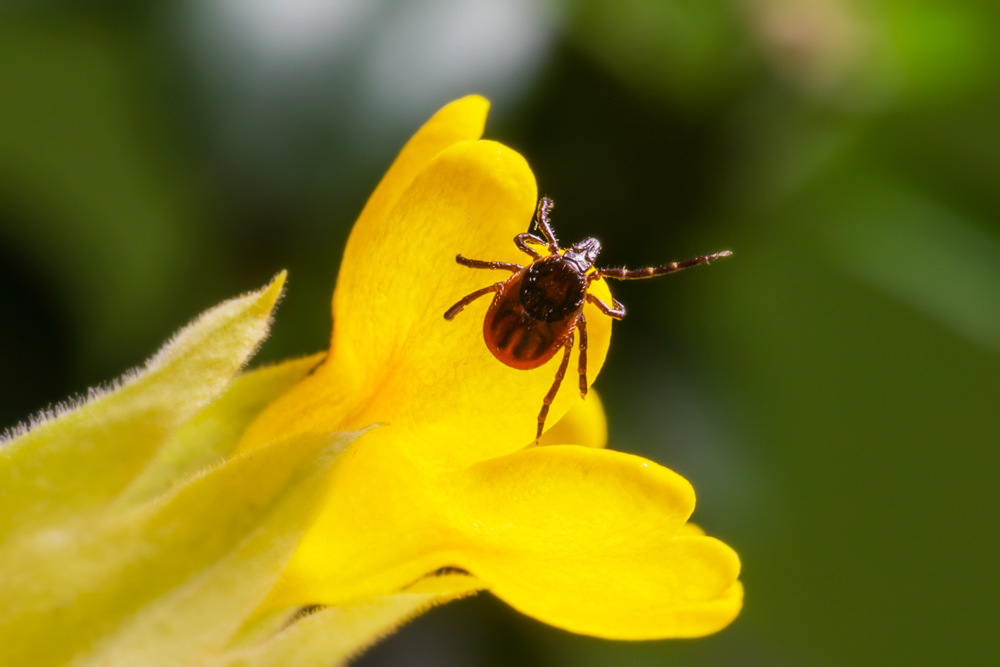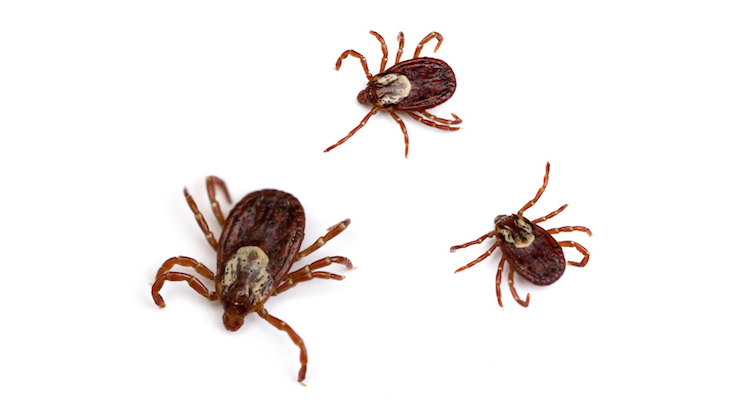Tick bites can be harmless, or they can infect you with diseases like Lyme disease or spotted fever.
Even though not all ticks carry infection, it’s best to try to prevent tick bites or to find them early. You would be best advised to take preventive action all year long with the one-two punch for Shrewsbury tick control.

Many of us may have thought they die off in the winter after the first hard frost. Unfortunately, they do not. The adult black-legged deer tick, which spreads Lyme disease begins its prime feeding activity just about the time of the first freeze. The reason being is that their main host animals are deer and deer are actively moving around in the fall. If deer aren’t around, black-legged ticks will attach to people or pets anytime the weather starts getting warmer.
Exactly What Are Ticks?
Ticks are parasites that feed on warm-blooded hosts by biting them. A tick bite can infect humans and animals with bacteria, viruses and protozoans (organisms made up of one cell) that can cause diseases.
Some of these tick-borne illnesses can be very serious and may include:
- Lyme disease
- Tularemia
- Ehrlichiosis
- Rocky Mountain spotted fever
- Anaplasmosis
- Babesiosis
Other conditions spread by ticks include:
- Colorado tick fever
- Powassan virus
- Southern tick-associated rash illness (STARI)
- Tick paralysis
- Spotted fever
- Relapsing fever
- Heartland virus
Also read: How can I protect my dog from Lyme disease?
Why Are Ticks Such A Problem In Shrewsbury?
The biggest reason? They are so small. Ticks are typically small and difficult to see until they have been attached for some time. They feed on your blood and become larger and easier to see.
Tick species most commonly found here include:
- American Dog Tick: This varmint will attach to animals including dogs, cattle, deer, raccoons and humans if given the chance.
- Brown Dog Tick: These invasive pests usually attach to dogs, occasionally feeding on people and domestic cats.
- Black Legged Deer Ticks: These harbingers of dread attach primarily on deer, cattle and other large animals and people. Deer Ticks are carriers of Lyme Disease transmitting it through bites. And if for no other reason than this alone, Shrewsbury tick control is an extremely smart way to protect yourself and your property.
Also read: Can you get Lyme disease in the winter?

 The main goal of all female ticks is to get their next blood meal, grow to adulthood, and reproduce. It’s their driving force. Both the
The main goal of all female ticks is to get their next blood meal, grow to adulthood, and reproduce. It’s their driving force. Both the 

 Warm weather has arrived. We are spending more time outdoors. Central Mass ticks are on the prowl. They are hanging on low-lying vegetation in your backyards and your favorite outdoor areas, like playgrounds, hiking trails, and even the beach. You can help prevent tick-borne illnesses, like the ones above, by hiring a reputable Central Mass tick control company to spray all the areas around your home.
Warm weather has arrived. We are spending more time outdoors. Central Mass ticks are on the prowl. They are hanging on low-lying vegetation in your backyards and your favorite outdoor areas, like playgrounds, hiking trails, and even the beach. You can help prevent tick-borne illnesses, like the ones above, by hiring a reputable Central Mass tick control company to spray all the areas around your home.